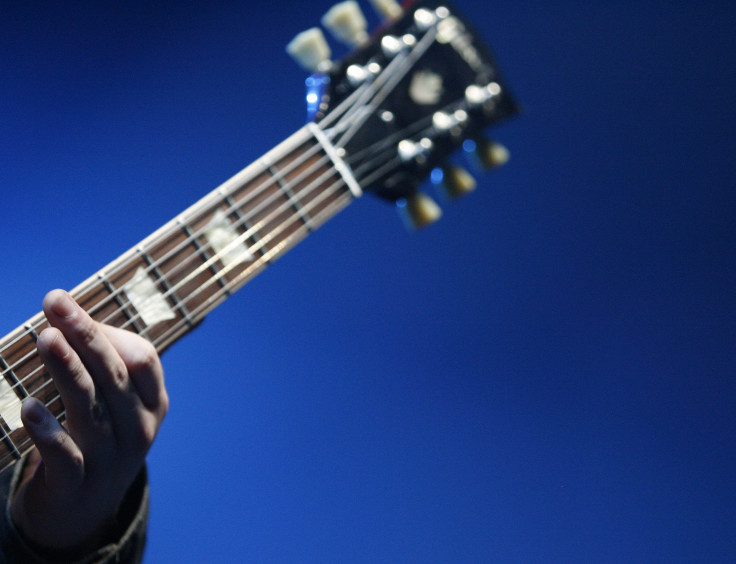Mood Music: Music May Physically Block Out Pain

Music has been known to have many benefits. Research has indicated that music can help children with ADHD, can help patients regain consciousness, and can enhance children's ability to learn well into adulthood. But, not to be outdone by "runner's high", music has been found to increase endorphins and increase a body's threshold for pain.
Those are the findings by a study by Robin Dunbar from the University of Oxford and his colleagues from the University of Liverpool and Binghamton University. The study found that people performing music, whether by dancing, drumming, or singing, increased the body's creation of endorphins, which have often been referred to as nature's opiates. However, the positive effect of music did not appear in people who were simply listening to music.
Dunbar and his colleagues conducted four different experiments. In one, a group of 12 drummers and nine employees at a music store were both watched. The drummers played together for 30 minutes; the employees worked while listening to music. Then, within 10 minutes, all 21 people were subjected to a test in which pressure was put on their non-dominant arm. All were asked to say when the movement began to feel painful. The drummers showed a higher pain threshold and more positive emotions.
A second experiment looked at the services of two different religious organizations. One service involved a lot of singing and clapping; the other, Anglican prayer music, did not involve music. Those at the singing religious service experienced a higher pain threshold than did the people at the Anglican service.
The third experiment compared dancers with musicians performing a rehearsal. That experiment found that dancers had higher endorphin levels than the musicians, indicating that the start-and-stop nature of rehearsals interfered with its creation of endorphins.
A fourth experiment asked people to listen to up-tempo and down-tempo classical music. Neither groups reported an increase of pain threshold.
Dunbar and his colleagues argue that music evolved out of a need to reinforce bonds in society. Indeed, a study published in 2010 and conducted on preschoolers found that people who sang and swayed in unison were more likely to work cooperatively afterwards. That finding indicates why music is often an integral part of religious and military rituals. Other theories on music suggest that it evolved from courtship rituals or the need to soothe toddlers.
Since performing music has been linked with the increase of endorphins, it makes sense that humans would like making it. It remains unclear as to when or why humans grew to actually appreciate hearing it.
Published by Medicaldaily.com



























